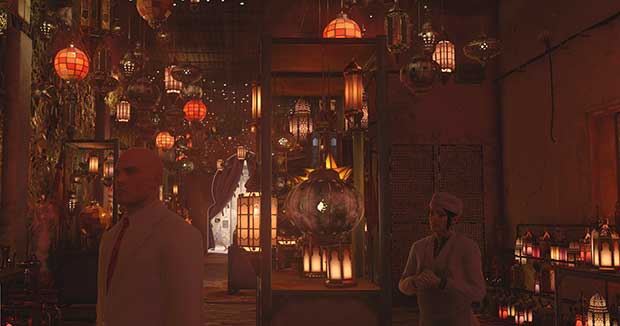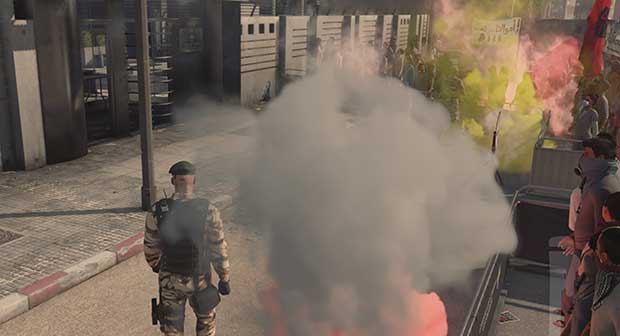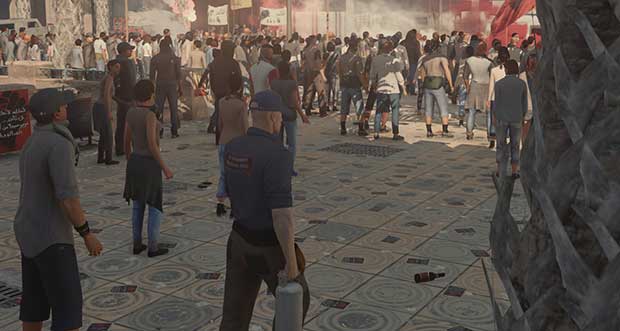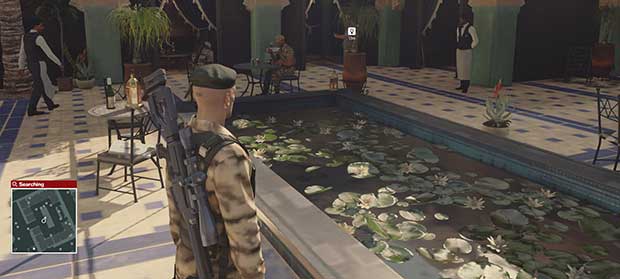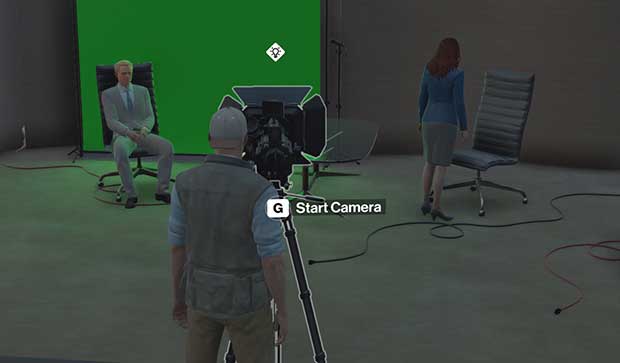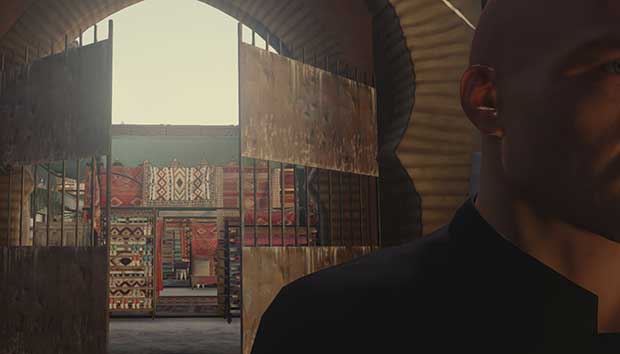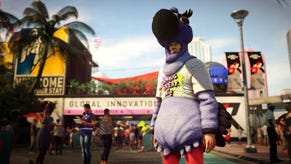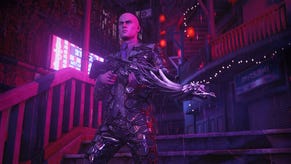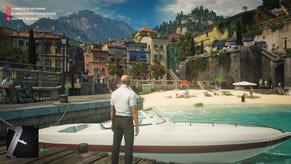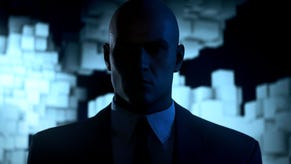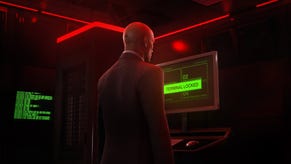Wot I Think: Hitman Episode 3 - Marrakesh
Murder In Marrakesh
The trend for Hitman's [official site] episodic levels to be grow bigger and more populous with each new installment continues unabated with third map Marrakesh, which is frankly just showing off. There's just no need to emerge from a vast crowd of tourists into a shop populated by hundreds of beautifully-glowing lamps and, from there, into an even larger horde, this time of protesters raging amid coloured smoke. No need whatsoever. Bless 'em for doing it anyway.
While Marrakesh is clearly more spectacular than previous episode (a ridiculously huge mansion in Sapienza, Italy), somehow it didn't drop my jaw in the quite the same way. I suspect that's because Sapienza busted open my expectations after the deflating Hitman: Absolution and the solid but not extraordinary first episode in Paris.
Sapienza was a "holy shit, they're actually doing this?" moment, as Hitman: Blood Money's values were not only restored but then made impossibly grandiose too. Now Marrakesh has rolled around, I happily accept that Hitman is really, truly back and it's not a shock to see how much it does.
I think also, though, that it doesn't flow quite as well, despite a heightened scale and startling sights. Sapienza was a pleasantly absurd microcosm unto itself: the rich bastards in that impossible mansion, the guiless tourists wandering around outside, the secret, 'orrible laboratory down in the basement. It felt like a game, not just a level. Marrakesh feels more like a level, despite ultimately unrealised attempts to become a vast, explosive setpiece
While structurally it breaks down into, essentially, biomes too, it doesn't feel quite so cohesive as Sapienza. You've got crowds of tourists looking at hats and lamps in one quarter, a huge mob of protesters right around the corner, a military base a road away, and then a consulate full of bureaucrats on the other side of town.
Somehow these all co-exist, each compartmentalised to their own neat spaces rather than collapsing into the total chaos, as the sight of it all suggests would be inevitable. There's a lurching sensation as I move between each; an abrupt change of gears and environments rather than a natural segue. The promised revolution never happens: the protestors just loop their routines, the soldiers stroll, unflustered, around the streets, the people in the consulate just hang out calmly, despite signs of frantic file-shredding. We're shown a powder keg, but not a one of these thousands of people living inside it has a match.
The slight sense of disconnect and unreality is reflected in the AI too, which seems to struggle to obey the hierarchy of Marrakesh. The military are in charge of the place, so most NPCs will let them - i.e. an Agent 47 dressed as one of them - go wherever they wish, sometimes with a polite greeting, sometimes with terrified acquiescence. And sometimes with a glaringly cheerful follow-up in the very next line.
Or they'll let you barge into their houses without warning, only to react like you just threw a hand grenade at a pensioner if you have the temerity to turn on a power switch connected to a vending machine in a public square.
Or they'll let any old soldier stride right through all those protesters and on into a heavily-guarded consulate full of VIPs, but if he tries to enter the private club - just a little bar, really - that already has a couple of soldiers in it without an invitation, the bouncer will start shooting. The military runs this town, apart from that one bar.
There's also this awkward distinction between 'soldiers' and 'elite soldiers', the latter of which just have an extra flak jacket and won't let normal soldiers into the military base that, surely, they came from in the first place anyway. As with that damnable bar, the distinction exists to gate the area, to prevent a player from grabbing a soldier suit PDQ then having free run of the place. Understandable, but the way it's been implemented is distractingly artificial: again, Sapienza had more convincingly flow and a clear internal logic, even if it was gloriously absurd.
There's some ugly obstacle work too - an infuriatingly impassable shrub to prevent one from dropping into the military base from an overlooking apartment, and arbitrary decisions about what ledges and rooftops you can drop down from and which ones you can't because the level is clearly terrified of speedruns but couldn't find a more elegant riposte. The logic problem is most desperately glaring in one of the assassination puzzles. Look away for the next two paragraphs if you don't want a solution that is, honestly, pretty hard to miss, to be spoiled.
There's this dodgy Swedish businessguy you have to kill. He's a bit like Richard Roper in The Night Manager: all charm and philanthropy on the outside, ruthlessness and greed underneath. One way you can get to him is to dress up as a cameraman accompanying a reporter who's been granted a rare interview with the guy. He sits underneath a giant fibreglass moose for the interview, because that's the kind of thing people do in Hitman games. There's a lever which will make that moose drop and squish him. Job done.
Alternatively, you can shoot the bolts holding it onto the ceiling, at which point it will fall and... nothing. He just sits amidst pieces of shattered moose, chatting away as though half a tonne of artificial deer hadn't just slammed into his skull at speed. Because the logic says he's only killed by the moose if you pull that lever. It's a bug, clearly, and it'll be fixed. But it reflects the house of cards here; Marrakesh contains so much space and so many people that, as with the soldier and that club, as with the chaos that never comes, the game can't always keep up.
OK, spoilers over, as is the griping. There are a few issues and again it doesn't gast my flabber as Sapienza did, but it's a vast, technically stunning and flexible possibility space nonetheless. Put Sapienza and the weird unrevolution out of your minds and this is absolutely everything we thought we'd never get from Hitman back in the bad old Absolution days.
In the main 'story' mission alone, dozens of options for how to get the job done spin out of exploration and experimentation. There are whole levels of the Consulate I haven't seen even after two successful runs and one botched one, whole patterns of behaviour and trick kills for the main two targets that I don't know about yet but have seen hints of.
There are few additional contracts for this map yet, but they'll come in time, and, importantly, I simply don't need them yet: it feels as though there's so much more to be done hunting what's already there. No, it doesn't feel as rich as Sapienza or even Paris to some extent, particularly because the military base area feels more rote and we saw something similar in the tutorial map, but God, it's still a fat, pulsing pinata of exploration and experimentation.
There is, perhaps, a slight sense that Marrakesh has been rushed - as well as the logic issues, that sense of revolutionary promise unfulfilled and unfortunate route-blocking I mentioned, I suffered from a ton of blurry textures - but it doesn't feel seriously compromised. Not quite the equal of its noble forebear, no, but it's the most visually impressive installment yet and, as a package, Hitman's three episodes so far are already providing more game for the money than anything else recent I care to mention.
We can't know if Blood Money has lost its crown until the series is done. Realistically I doubt it, because Hitman doesn't do high concept or comedy as well, but hell, it's in with a chance. 2016 is a good time to be a hitman.
Hitman Episode Three is out now.


